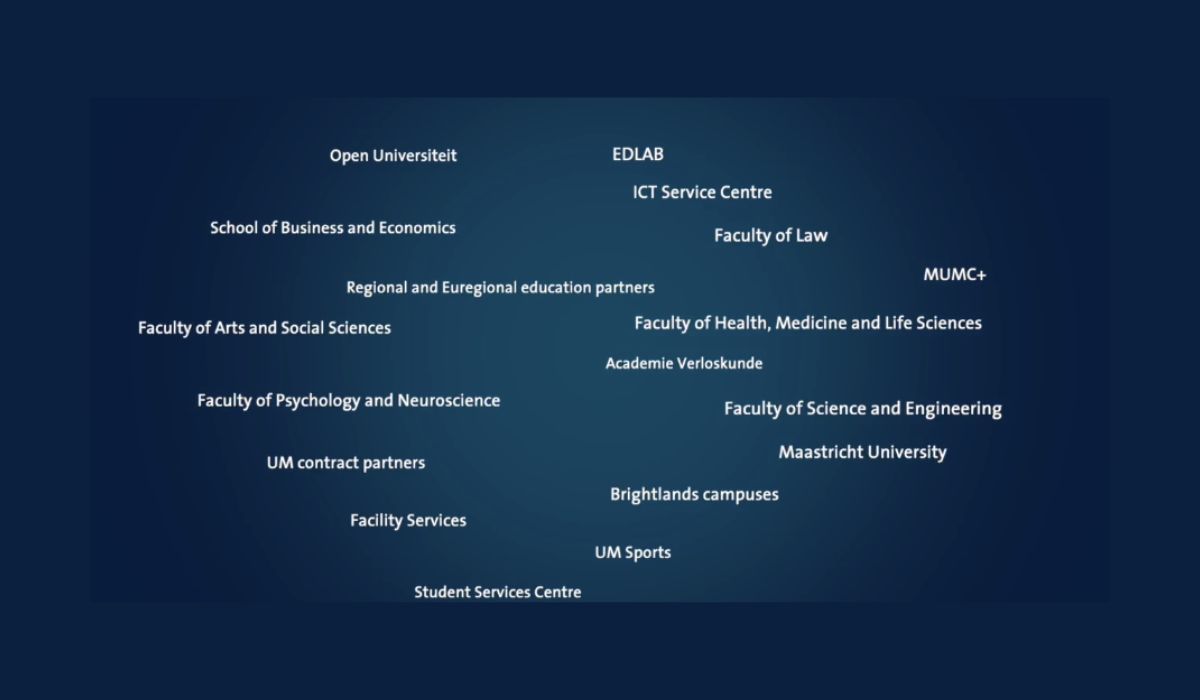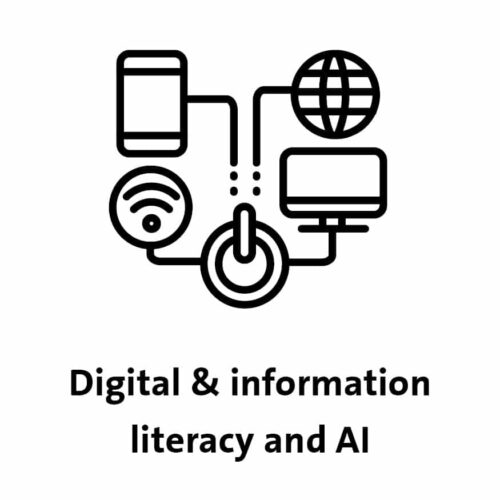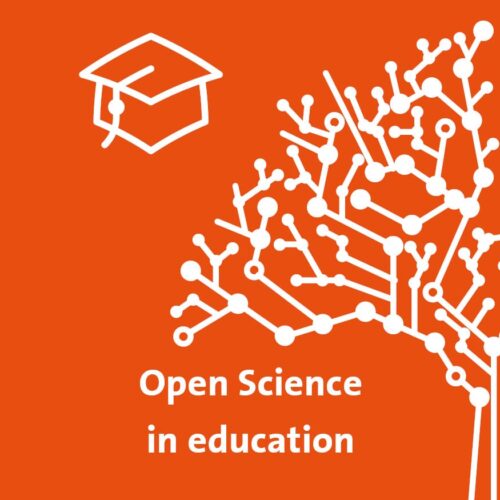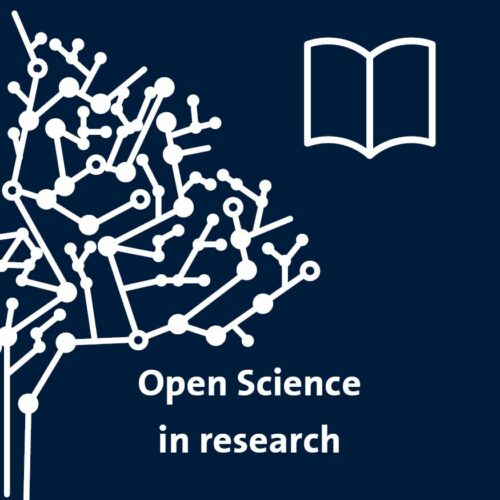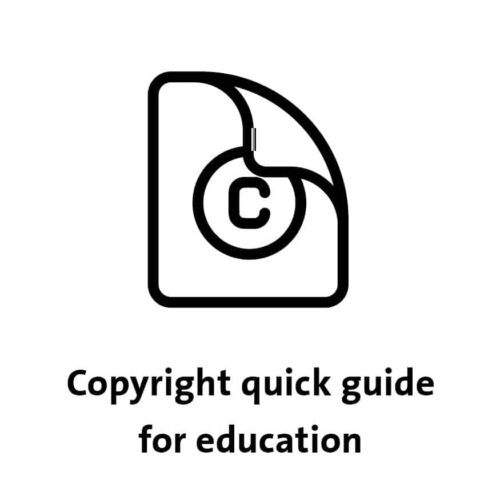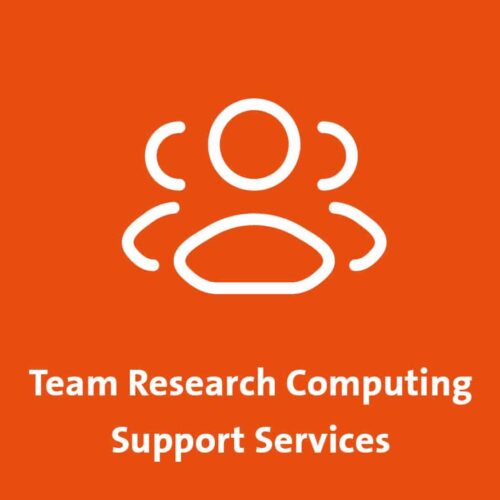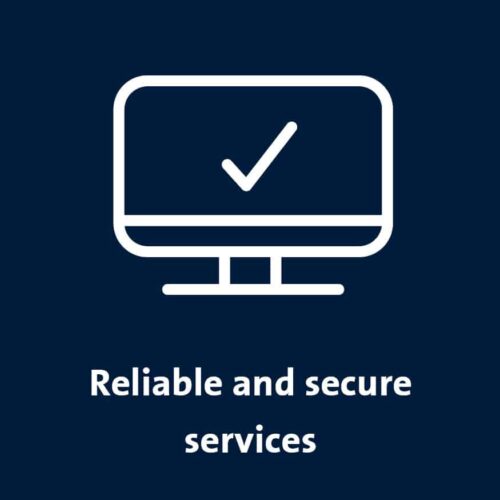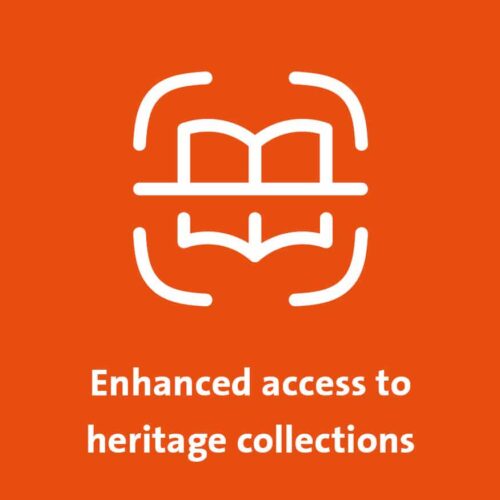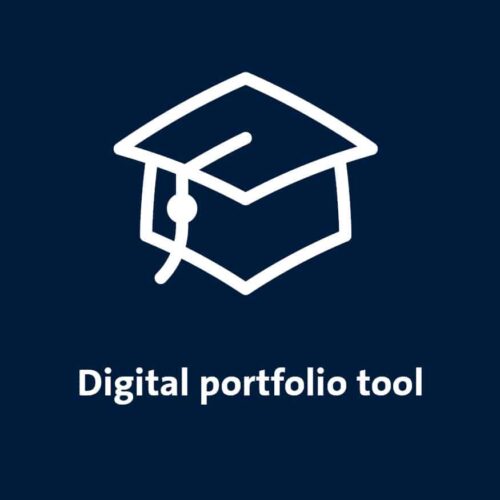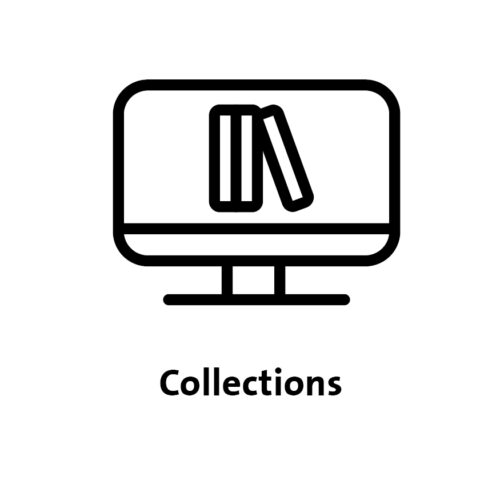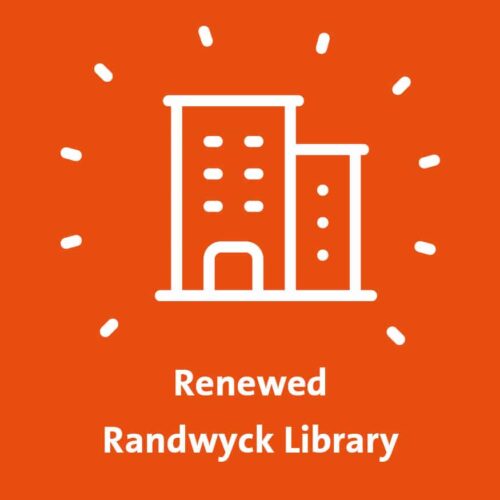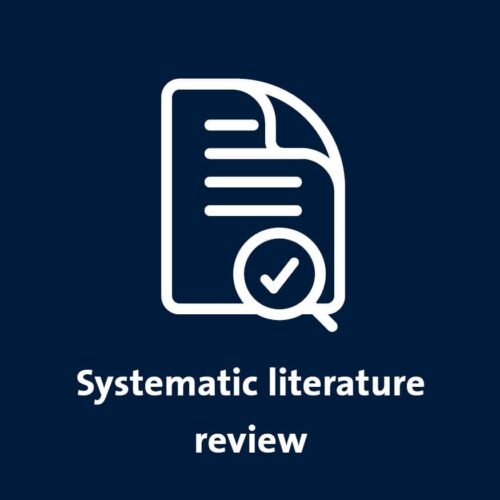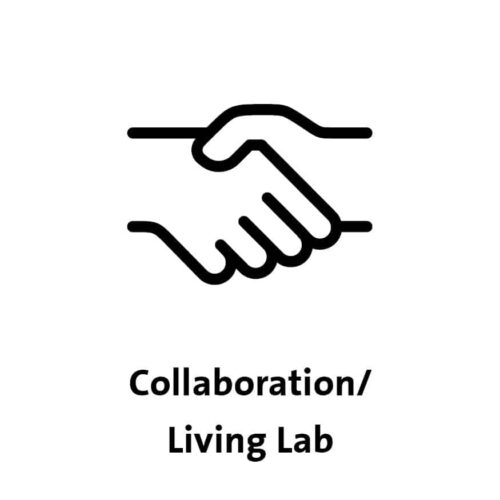We are also working towards the objectives outlined in our strategic plan 2022-2026. By clicking on the tiles below, you can explore the projects we have been developing collaboratively in the library. For each highlight, we’ve used magnifying glasses to indicate which strategic theme it aligns with. Collaboration is central, as these accomplishments would not have been possible without the support of our library colleagues, faculty members and partners, both within and outside of UM.
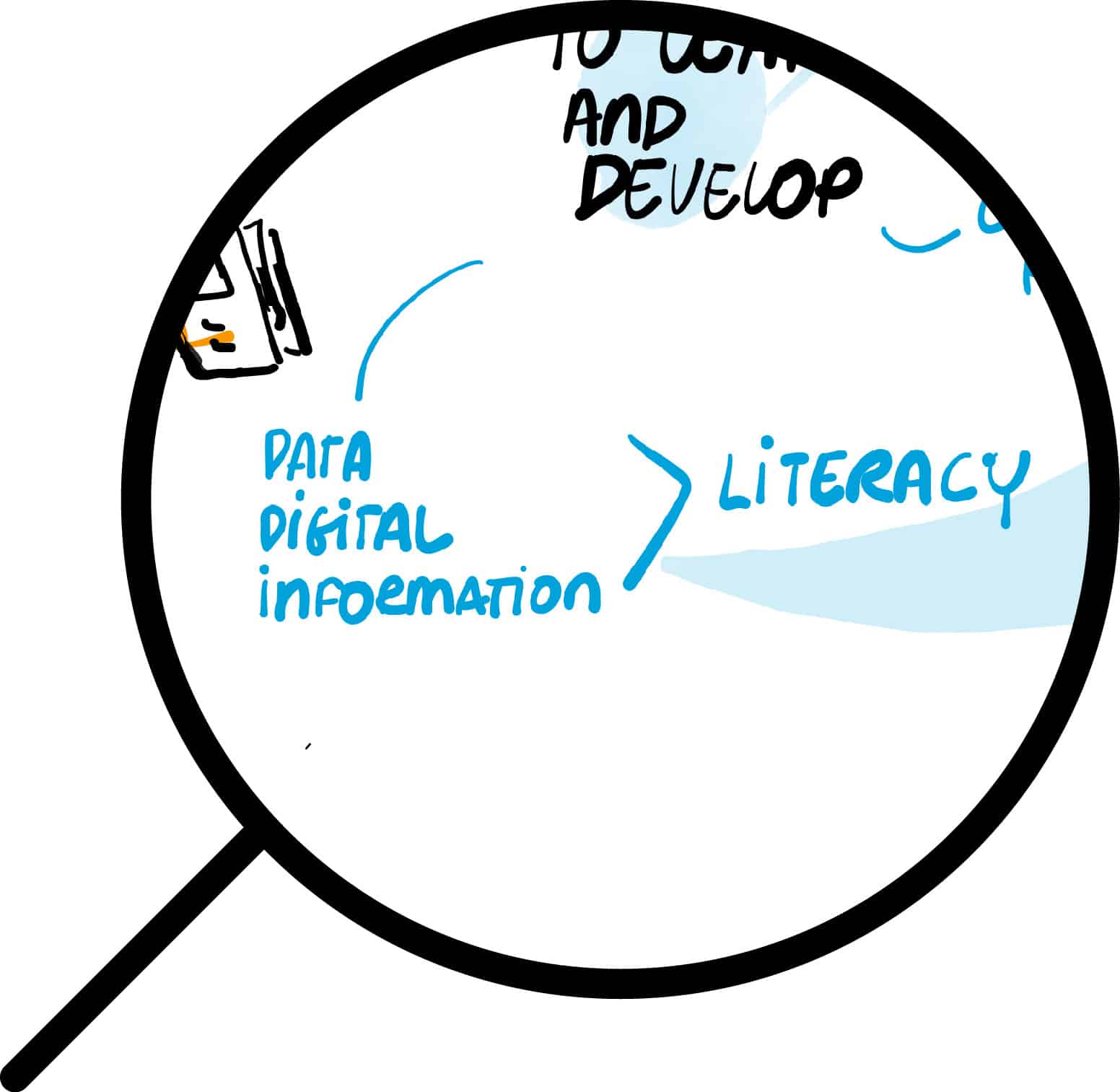
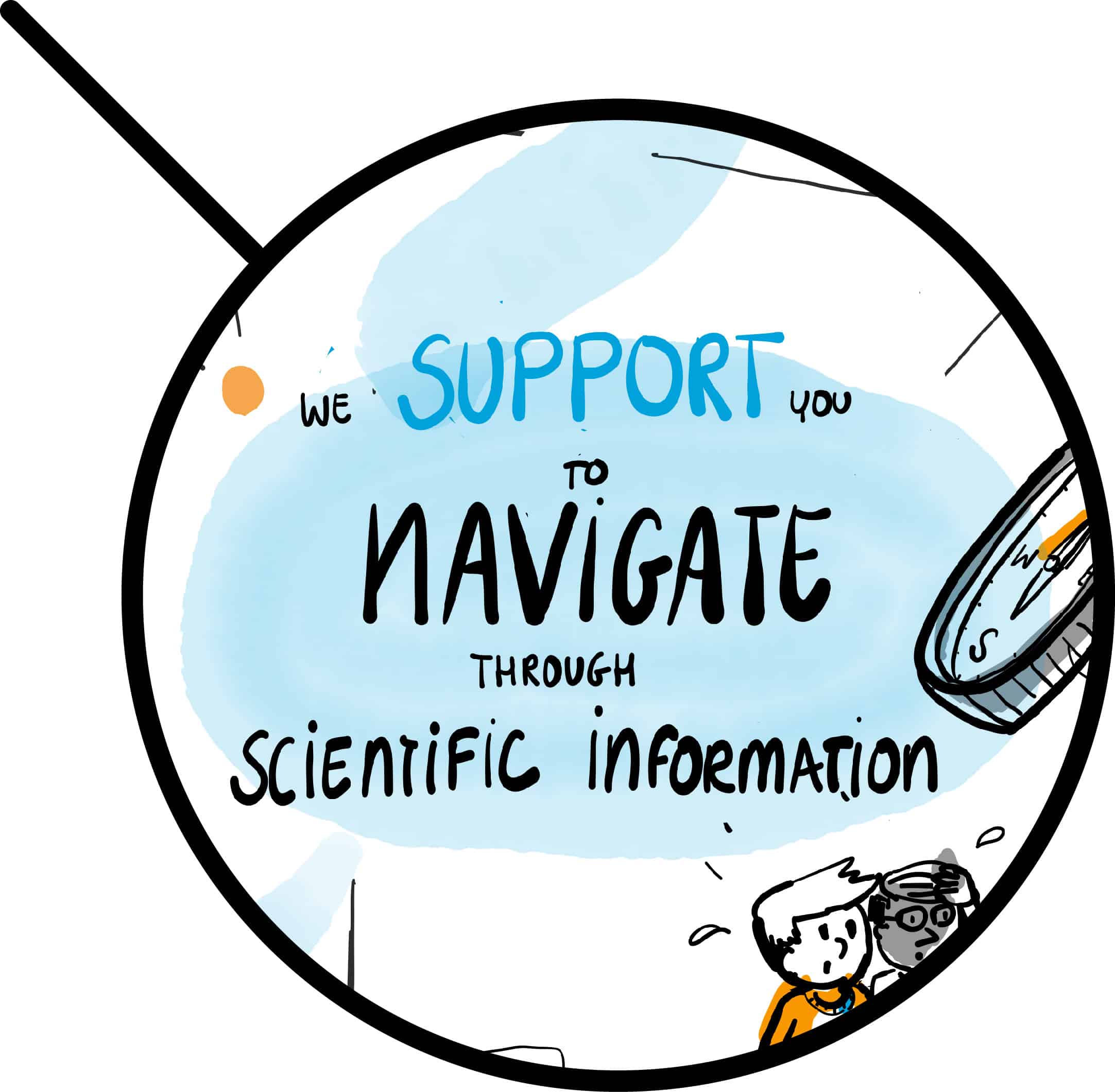
Digital & information literacy and AI
The Digital Literacy programme supports the Maastricht University (UM) community in becoming knowledgeable, competent, and critical academic digital citizens. Participants following (parts of) the programme acquire relevant and necessary 21st-century skills, such as critical thinking and dealing responsibly with and creating academic digital information. The library therewith contributes to equitable access to digital literacy skills development and state-of-the-art technological resources, such as our Digital Labs. Newly added to the programme is the Digital Skills Corner. A pilot in collaboration with ICTS where students can visit the recurrent walk-in sessions to improve their basic digital skills.
The online information literacy skills modules offered by the library have been updated with more topic-specific micro-modules. These modules still cover all the necessary information literacy skills but do so in a more focused way to facilitate the easy embedding of these skills into courses and assignments. New modules have also been developed, with a focus on digital literacy. The ‘Prompt engineering’ module is a follow-up to our ‘Responsible use of generative AI’ module. While the ‘Responsible use of generative AI’ module focuses on ethical guidelines for AI use, the ‘Prompt engineering’ module provides students and staff with practical guidance on how to interact effectively with modern AI tools. Read more about the full range of our skills modules.
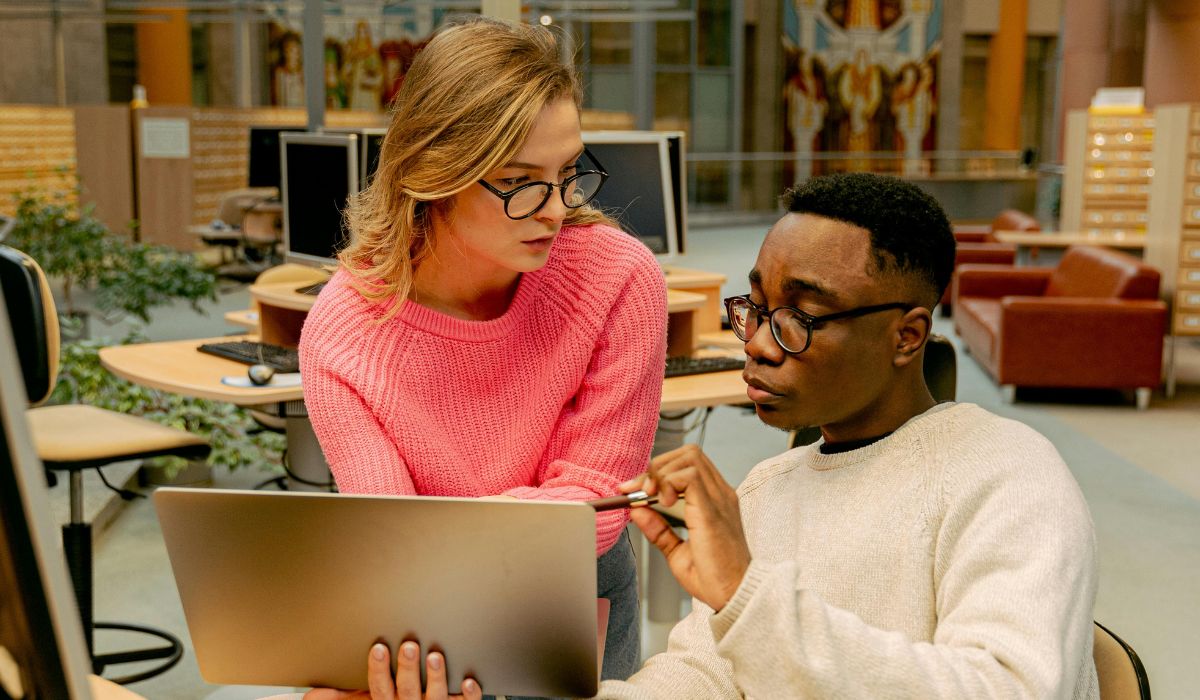

Open Science in education
Open Science in Education is about embedding open science practices into education. This includes integrating high-quality research outputs into teaching, promoting the use of Open Educational Resources (OERs), and encouraging open educational practices. It empowers educators and students to co-create accessible, high-quality learning materials, fostering a culture of innovation, collaboration, and inclusivity in education. The University Library leads this initiative under Maastricht University’s Open Science policy.
This year, the library secured funding through the Npuls Open Up scheme, allocating half of the funds to faculty-led educational projects. Additionally, the Maastricht University Library’s Open Science in Education team focuses on advancing and promoting open learning materials across six key areas, aligning with the international Open Science movement. The six winners of the OpenUp Grant have now been announced.
In Spring 2024, the Open Science in Education team conducted a survey with over 400 UM students to explore their awareness of and engagement with Open Science practices and to gather their perspectives on accessible education. Read more about the results of the Students Experience Survey.
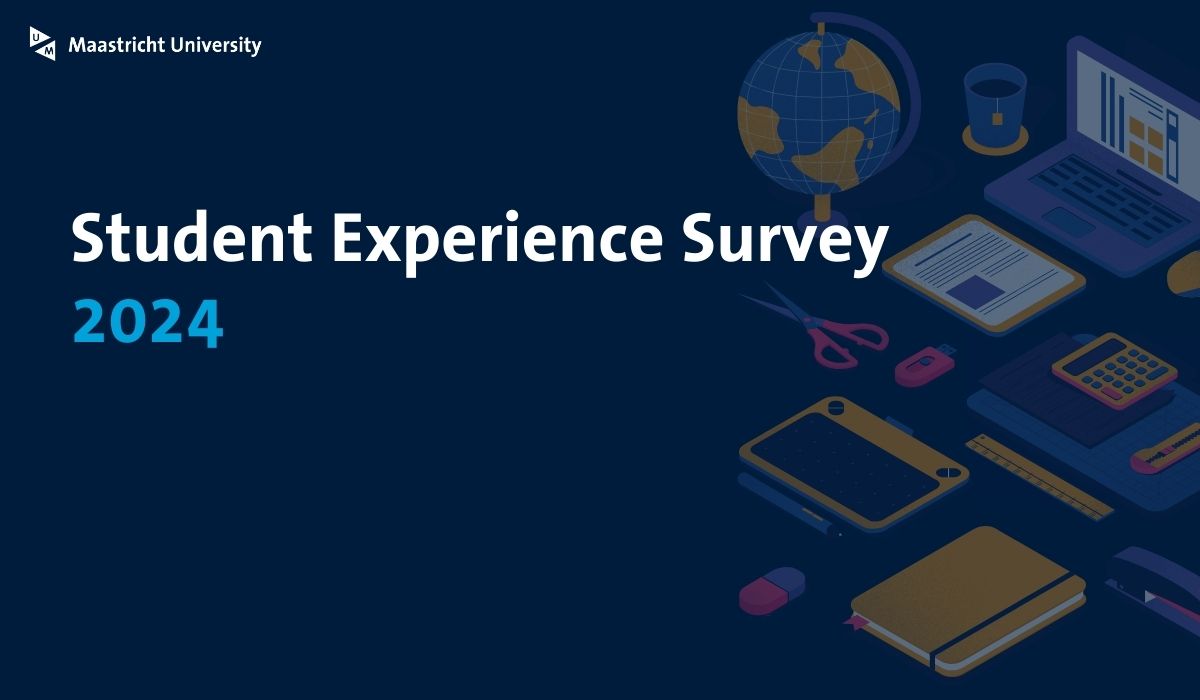

Open Science in research
Revised Research Data Management Code of Conduct
A revised Research Data Management (RDM) Code of Conduct was presented in August 2024. This essential document sets forth comprehensive guidelines and best practices for RDM, applicable to all research staff and students across all disciplines and research activities at Maastricht University (UM). This Code of Conduct is aligned with the UM Open Science policy, released in 2022. It provides academics with an outline for managing research output, keeping in mind our adage “as open as possible, as closed as necessary”.
National Open Science Festival
On 22 October 2024, UM proudly hosted the 4th edition of the National Open Science Festival. UM Library was part of the organisation committee. Guided by the motto ‘Meet, share, inspire, care’ over 350 visitors from fellow universities and other institutions in the education and research sectors across the Netherlands gathered for a day of engaging discussions, workshops, and networking opportunities, all focused on advancing Open Science. Check out the after movie of the festival in the news item.
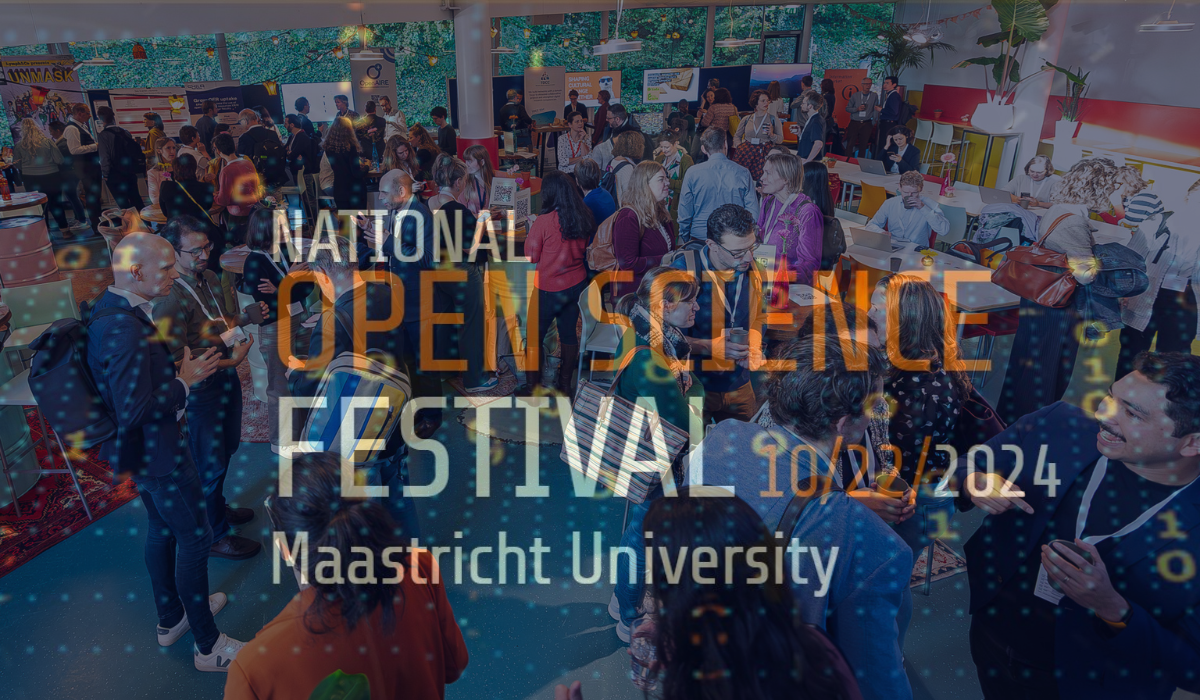
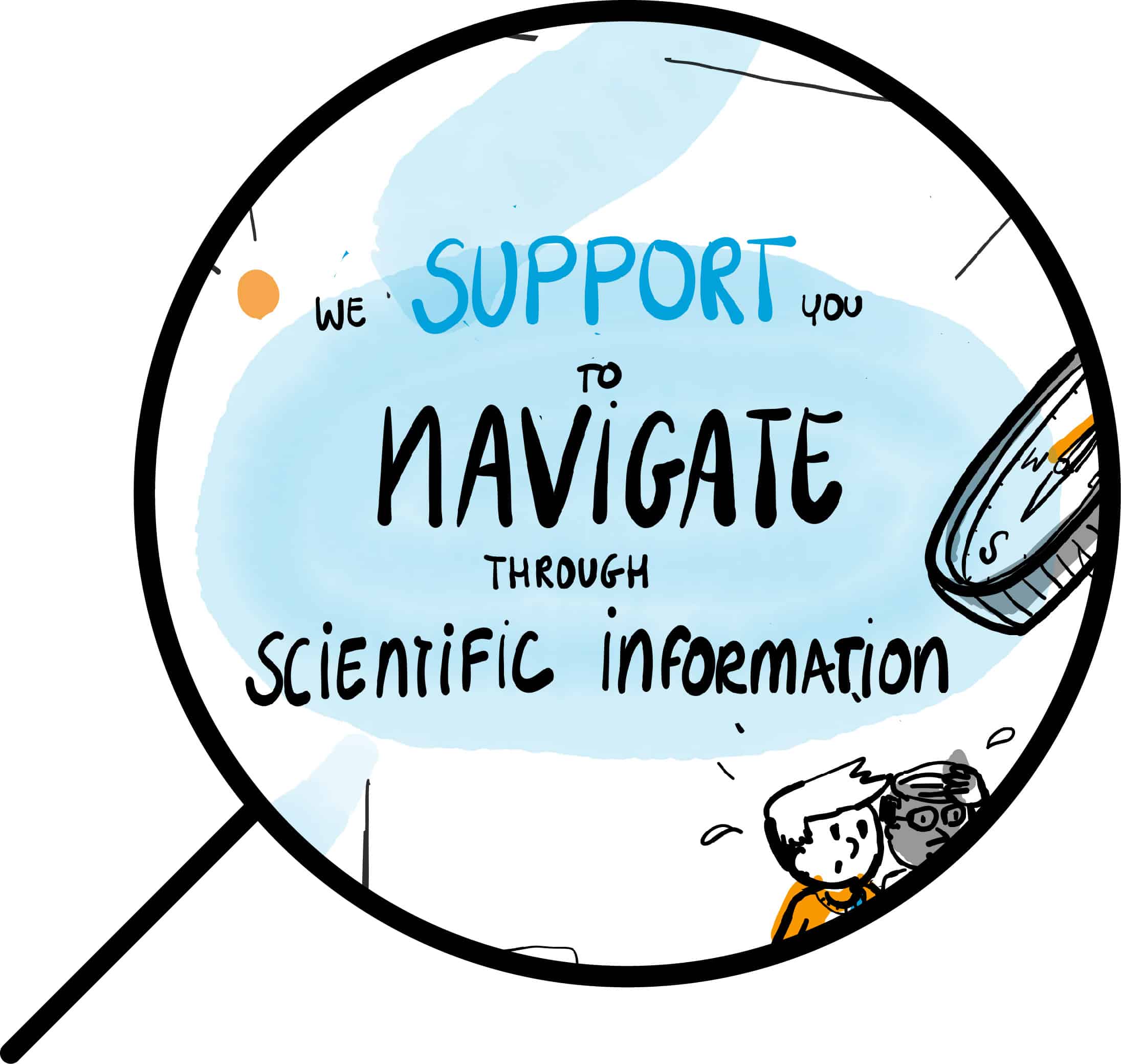
Copyright quick guide for education
When teachers share files with their students, they must ensure compliance with Dutch copyright rules. These rules can sometimes be complex and challenging to navigate. The Copyright Information Point has developed a practical Copyright in education quick guide to support teachers in adhering to these requirements. This guide provides clear and concise information that makes it easier for teachers to share materials responsibly and legally.
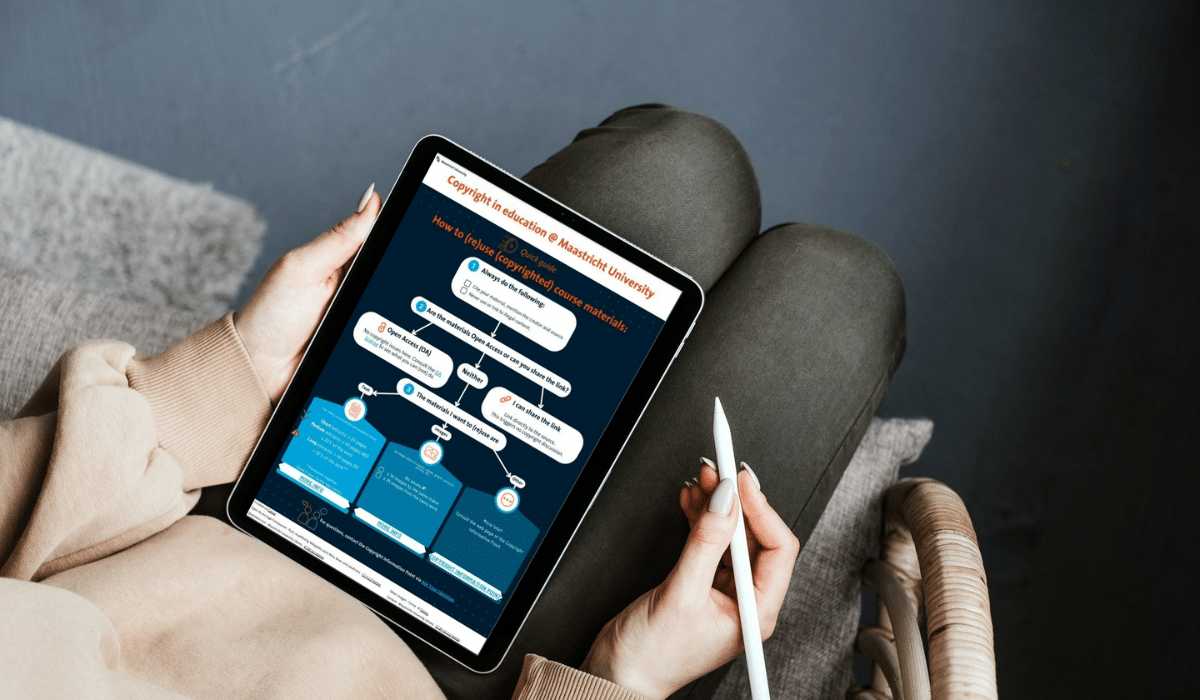

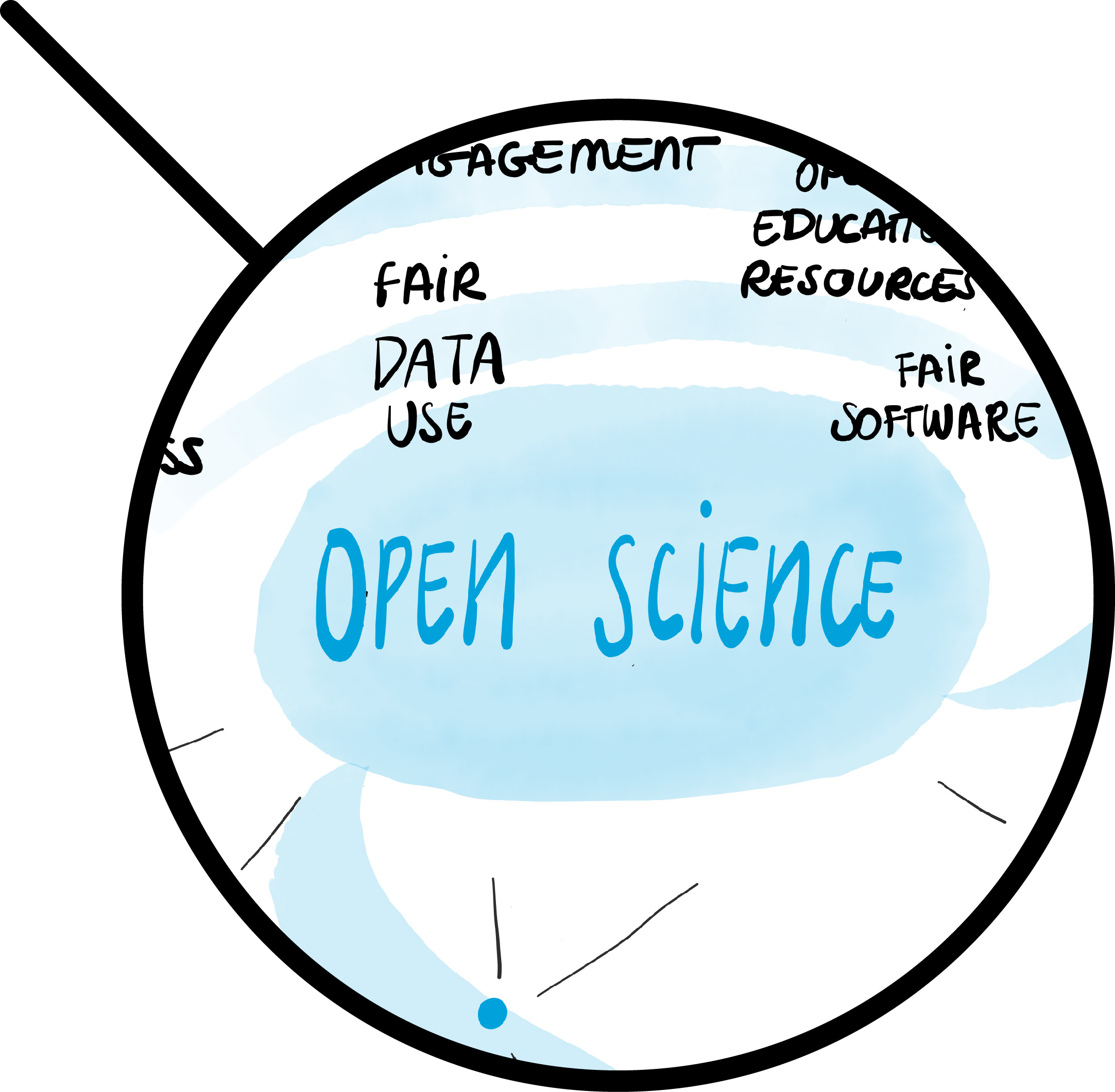
Research Computing Support team
The Research Computing Support team was established to provide support for local cloud computing facilities, specifically the Data Science Research Infrastructure (DSRI), as well as to guide researchers in using (inter)national computing resources. The UM Library and ICTS have joined forces to develop the DSRI and its associated support services continuously. By placing the team within the Research Support & Development department of the UM Library, they can coordinate closely with other research support colleagues, such as our data stewards, to align the infrastructure and support optimally with researchers’ needs.
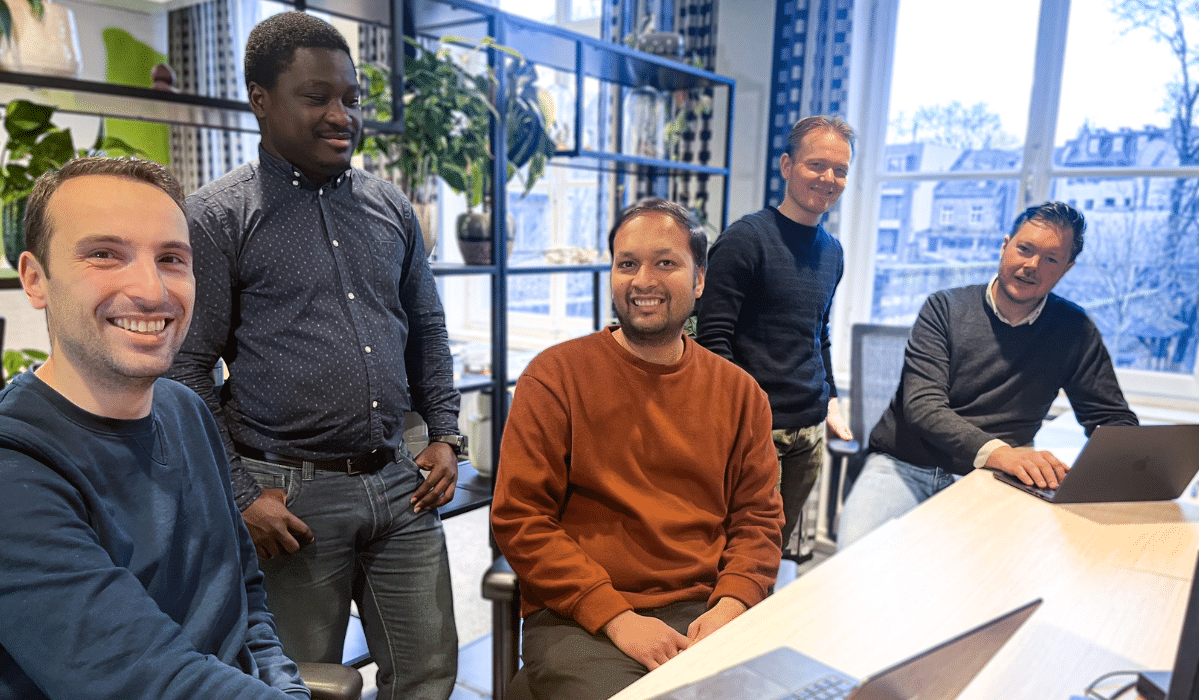

Reliable & secure services
We are committed to providing reliable and secure support and services that continuously contribute to the academic goals of our community. This includes both innovation and the sustainable maintenance of these services. For instance, Canvas and Qualtrics were audited by SURF in their national security audit 2024 to reinforce our ongoing dedication to improving security and user experience. Additionally, we introduced Single Sign-On (SSO) for Qualtrics, further enhancing accessibility and security for our users. We also renewed our contract with OCLC‘s WorldShare Management Services (WMS) to enhance the efficiency and functionality of our library system for users.

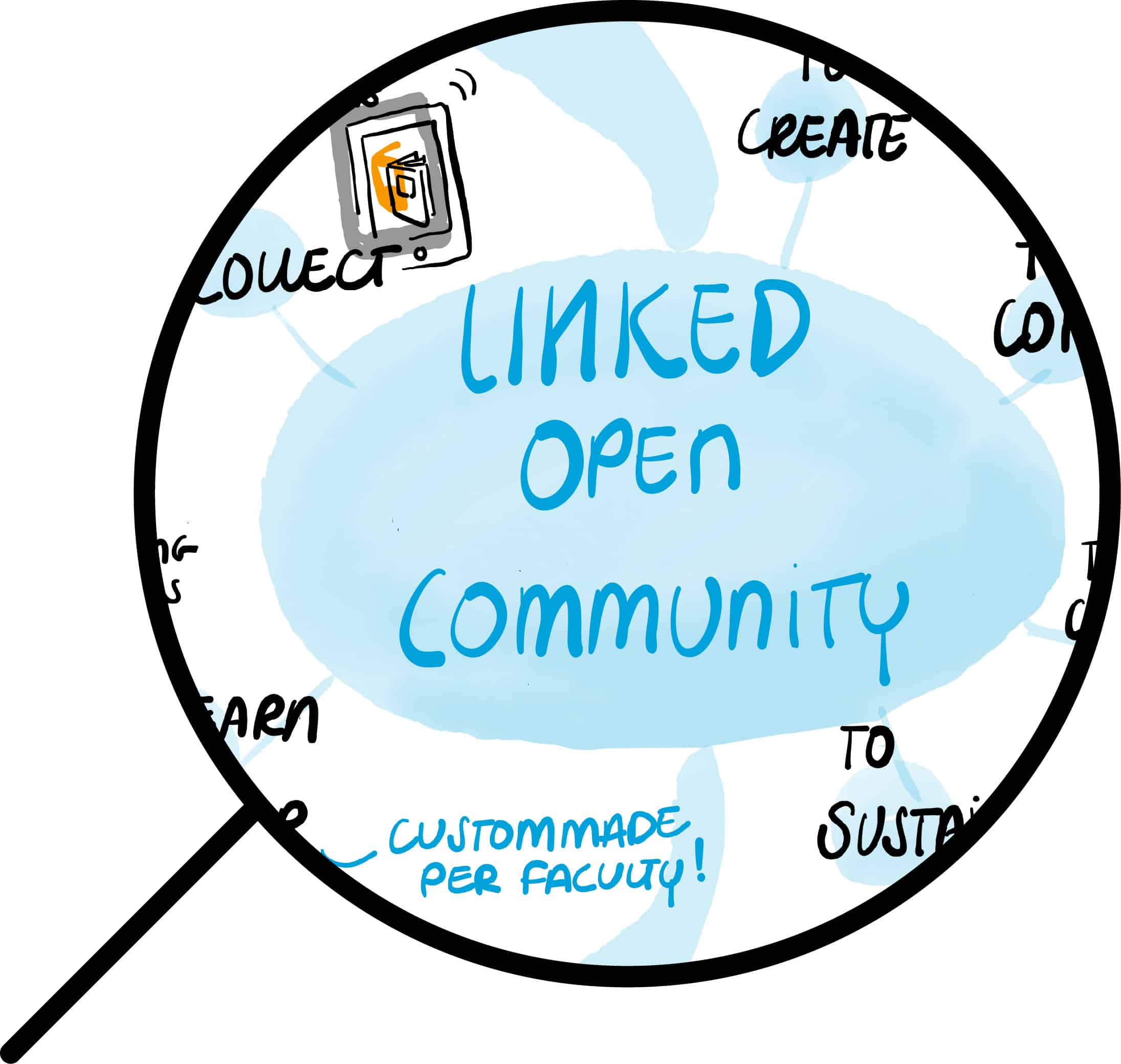
Enhanced access to heritage collections
We aim to uphold an open standard for providing scientific information, including high-quality images. The library has implemented advanced digital functionality in its existing Omeka S system (a software platform for digital collections), using the International Image Interoperability Framework (IIIF) to enable rich metadata access, public availability, and compliance with national heritage standards. This project demonstrates how technology can enhance the accessibility and utility of heritage collections for researchers and the public.
IIIF is a standard that improves the online visibility and accessibility of images from heritage collections. With IIIF, users can easily view high-resolution images, zoom in on details, and compare images from different collections side by side. Read the news item or watch the webinar about this project.
Our developers share insights and experiences in a blog post on Tech Talk, offering a guide for institutions interested in similar digital transformation projects. Go to the blog.


Digital portfolio tool
Several UM bachelor’s and master’s programmes across four faculties (FHML, FPN, LAW and SBE) began using digital portfolio tool PebblePad, more will follow in 2025 and the years ahead. UM acquired a university-wide license in February 2024. Pebblepad is used to record and track learner growth and achievements, reflection and feedback processes, longitudinal assessment, and competency development. The Digital Learning Environment (DLE) team from the UM Library provides second-line support. Read more in the news item. On 20 November four UM programmes shared their experiences with PebblePad during a PebblePad portfolio event. All recordings of the presentations and a flashback of this event can be found in the news item ‘Highlights from an inspiring PebblePad portfolio event at UM’.


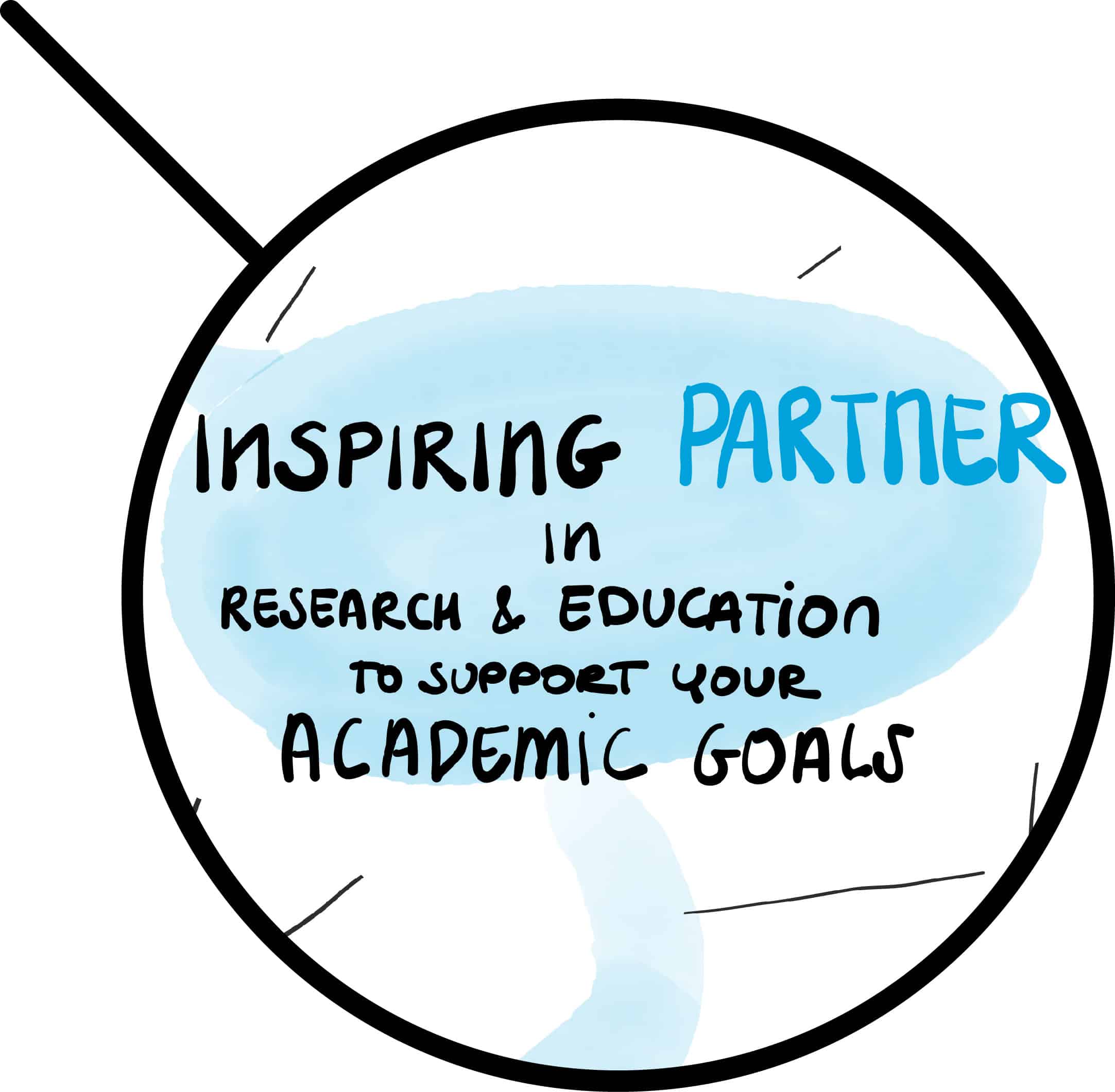
Collections
The University Library takes care of an up-to-date collection for education, research, and patient care. Decisions about available materials are taken in close cooperation with faculties and other UM stakeholders to ensure that they fit the needs of the university community. Our collection includes faculty-related content, central background materials, and the Special Collections. Available resources, in different formats such as (e) books, (e) journals and newspapers, databases and, audiovisual materials, are easily accessible via the library website and/or in the library locations.
Our team works continuously on updating, maintaining, and showcasing our collections and is there to support you to navigate through scientific information.

One recent addition is Overton, the world’s largest policy document database. Covering 190+ countries, it includes parliamentary transcripts, government guidance, and think tank research, while linking policy documents to academic works. Following a successful trial and positive feedback from faculties, Overton is now part of our collection as of January 2025. Next to that we expanded our JSTOR license to the entire JSTOR Archival Journal & Primary Source Collection.



Renewed Randwyck Library
Randwyck Library underwent a true metamorphosis. The central theme of the library is “a river of knowledge”. With a focus on the connection between physical and digital, new Digital Labs, space for inspiration and well-being, this library ensures a futureproof environment, services and facilities.
Want a sneak peek of the location? Discover the renewed Randwyck Library in this video.
Or want to know more about some of the highlights of the location like the newest Digital Lab, the Vesalius Room, the furniture, the concept behind the new design or collection management? Watch the behind the scenes videos!
The Digital Labs are part of the Digital Literacy programme.
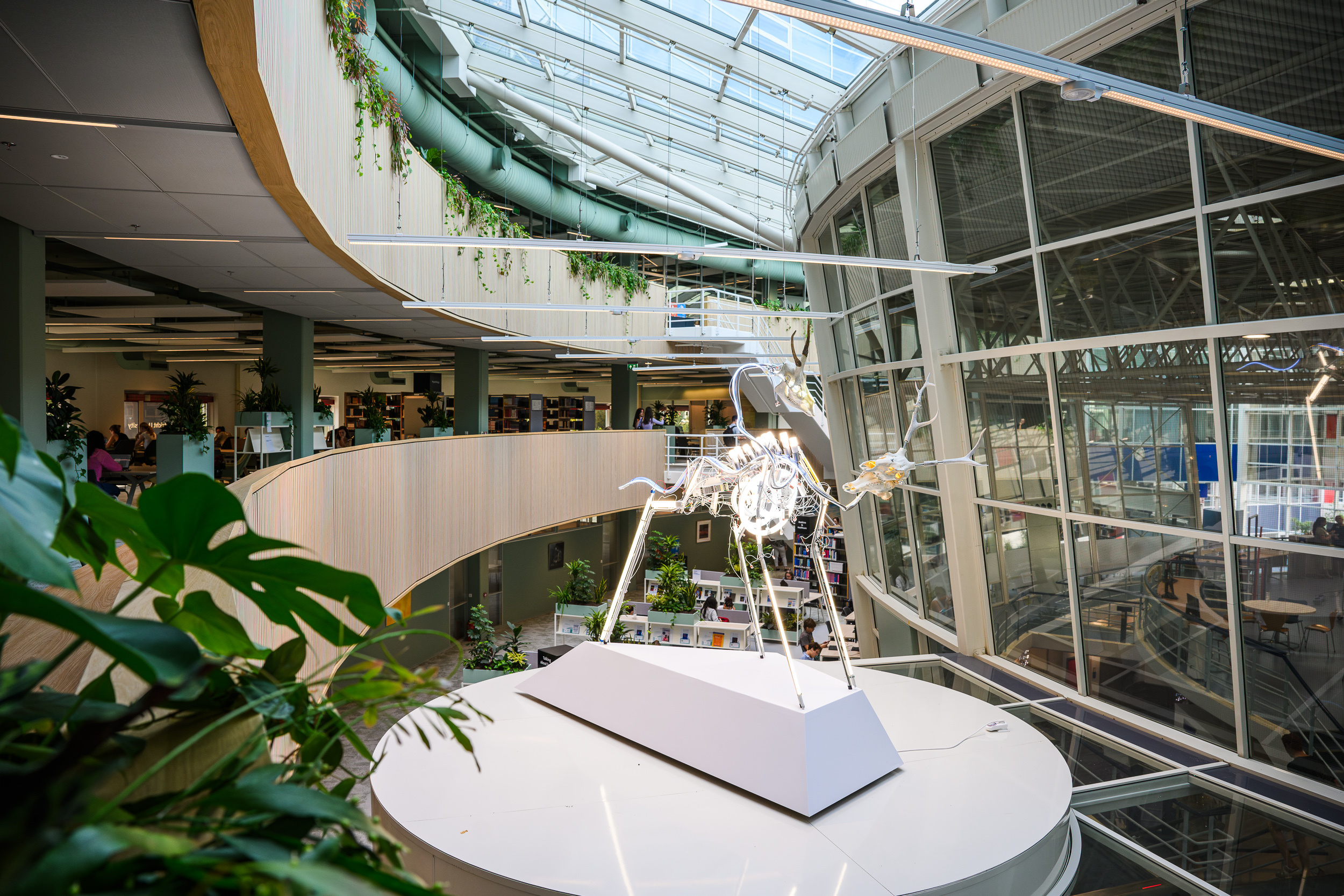

Systematic literature review support
The systematic literature review support team provides training and support in developing effective literature search strategies for reviews such as systematic and scoping reviews. We also advise on processing the retrieved literature. The demand for our 1-to-1 support continues to grow. PhD candidates remain our primary target group, but in 2024 the main growth was among students, post-PhD researchers, and clinical staff.

Since early 2024, we have offered online walk-in support where anyone can go without an appointment. Here, a wide variety of questions are addressed: from checking a search strategy to choosing an appropriate review type and from tools for screening to writing a protocol. Where necessary, this is followed up with a 1-to-1 consultation. This walk-in support is primarily aimed at students, but researchers can of course also make use of it.
A complete overview of support and contact facilities can be found on the library website.

Collaboration & Living Lab
UM Library is happy to act as a partner in collaboration projects with UM entities, as well as external organisations. This way, we aim to provide a true Living Lab within the walls of our Library Locations and Learning Spaces.
Read more about some of the collaborative projects in 2024.


Thank you for your support
Closing the UM Library highlights of 2024, we would also like to express our gratitude to our faculty members, partners, clients, visitors and stakeholders for yet another year of inspiration, collaboration and innovation. We are looking forward to continuing to work with you in 2025!
